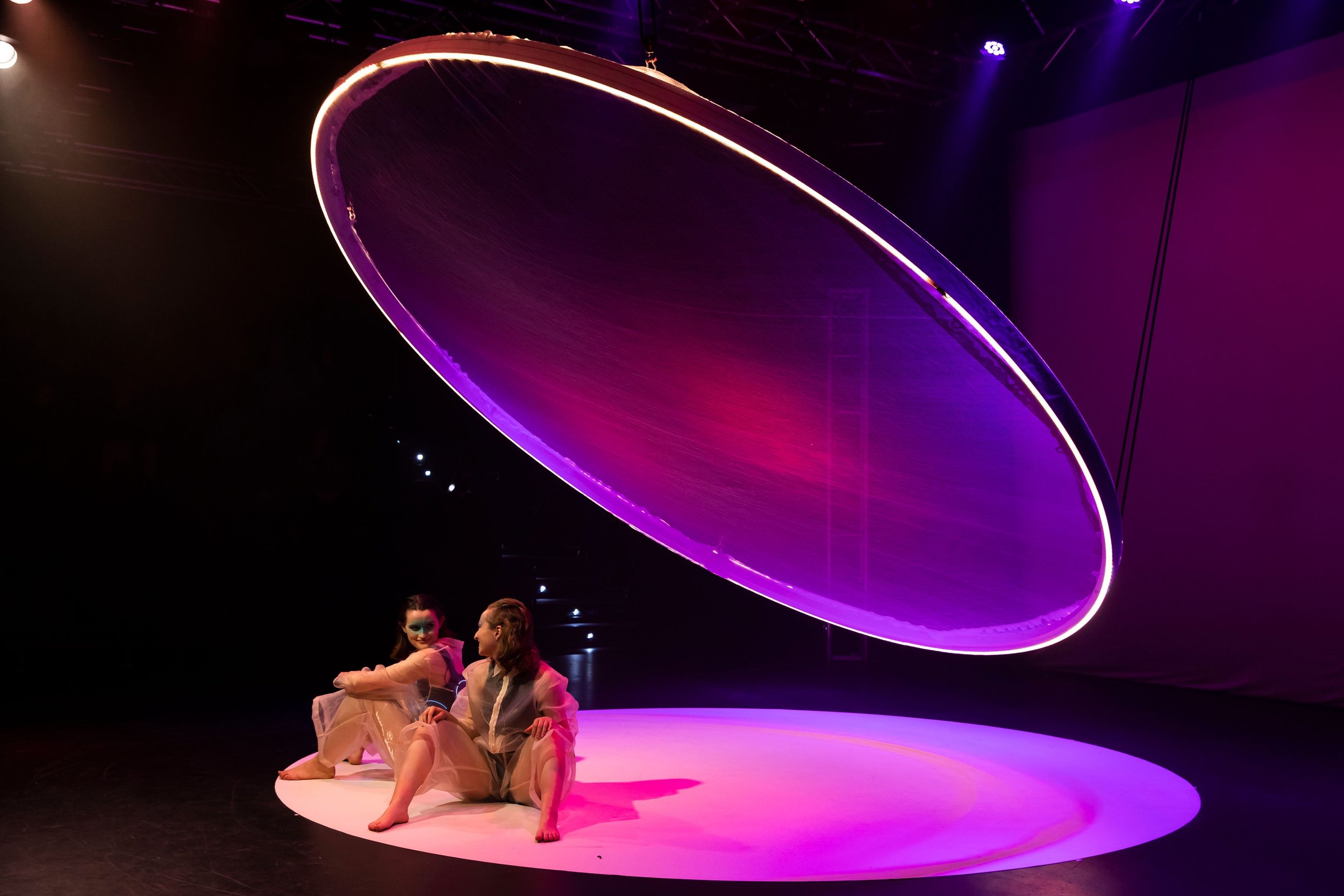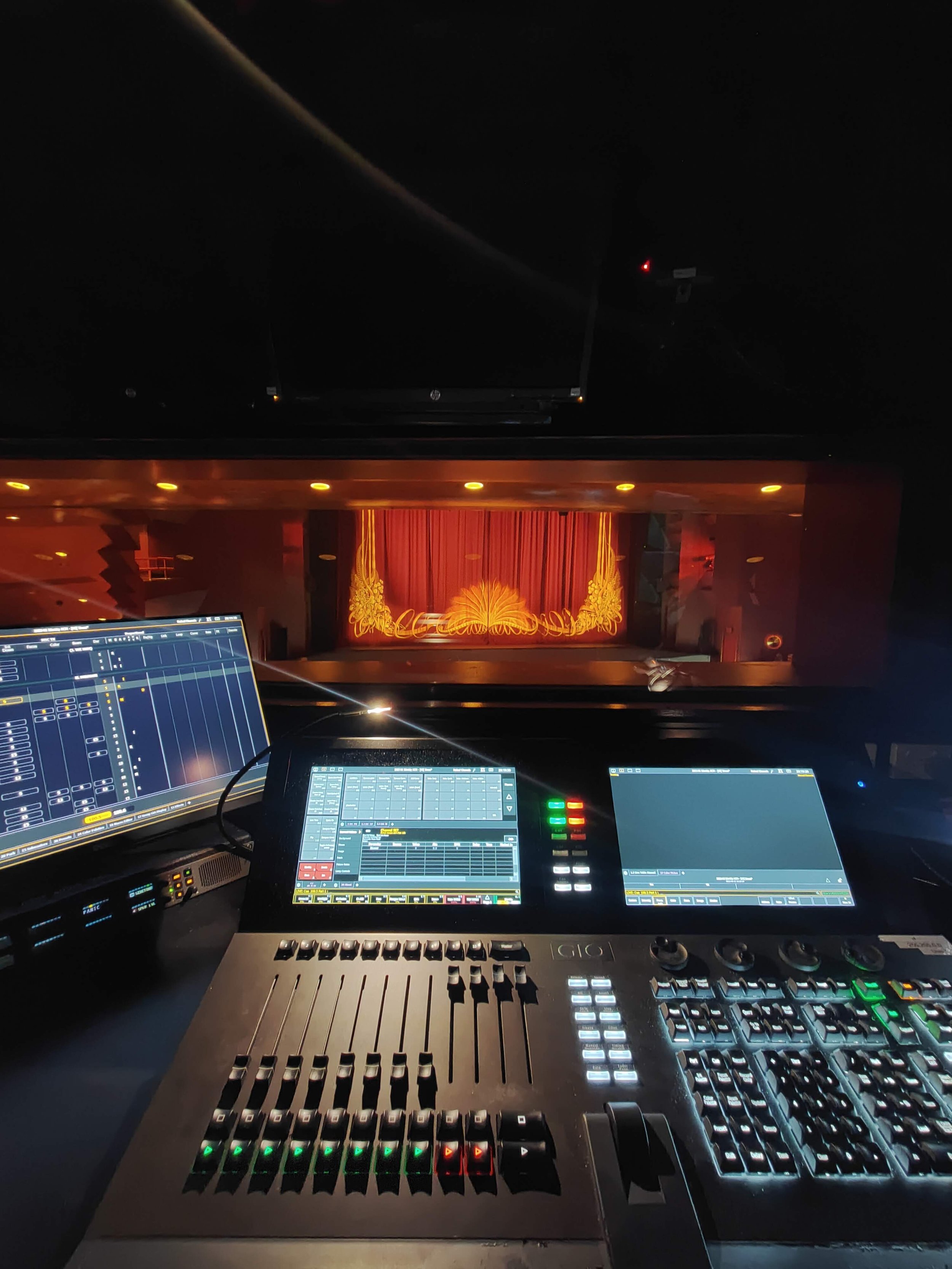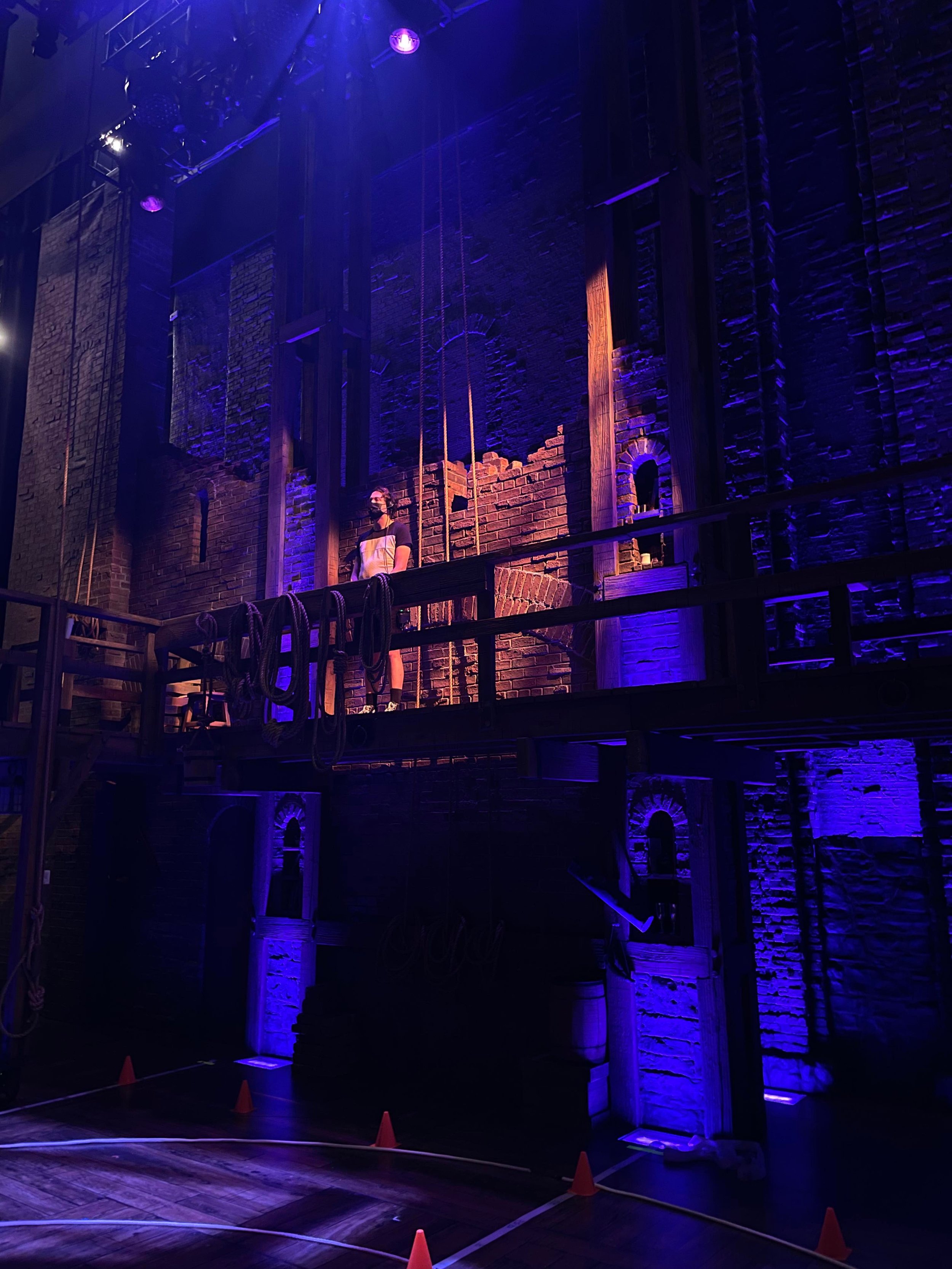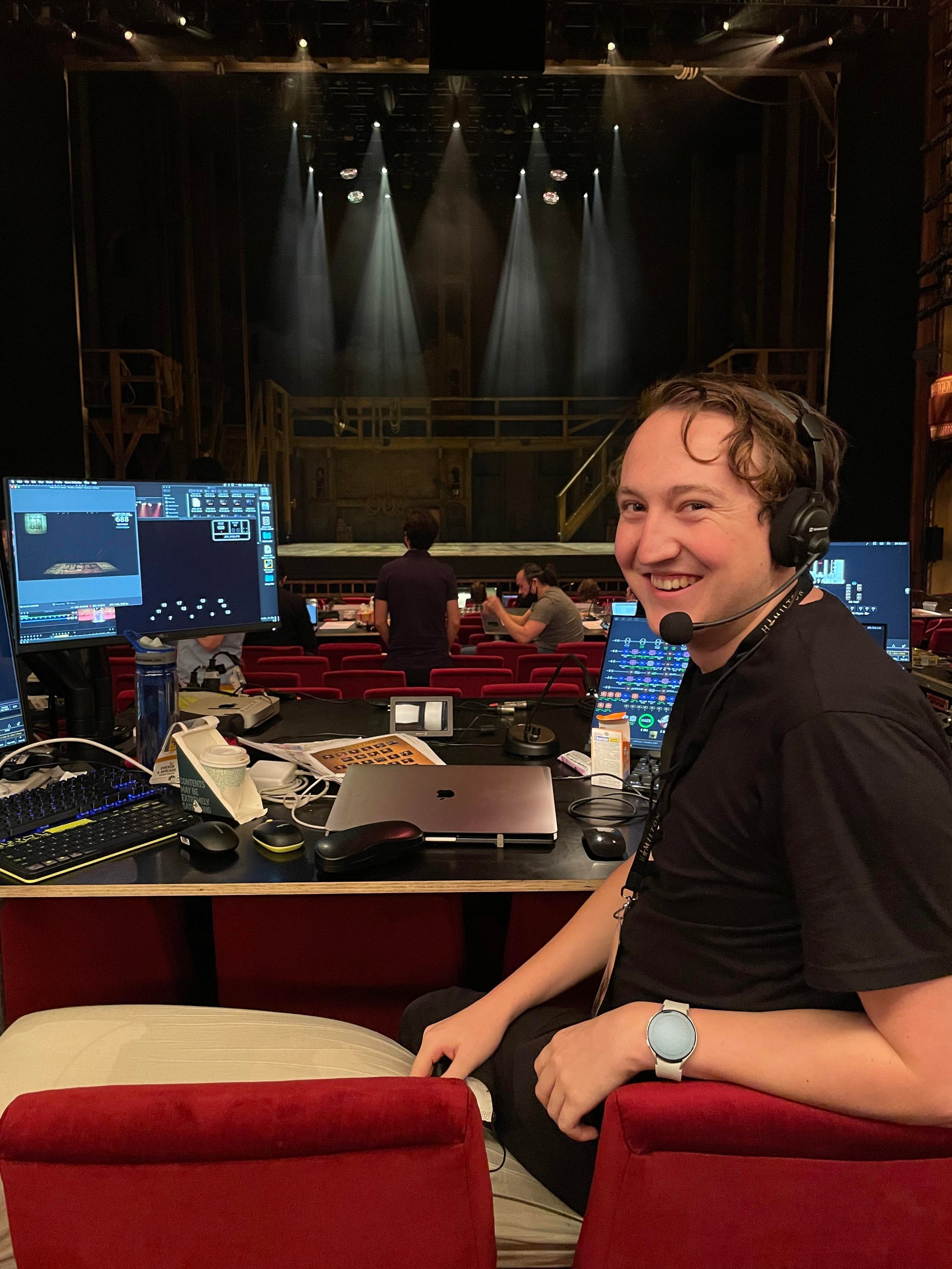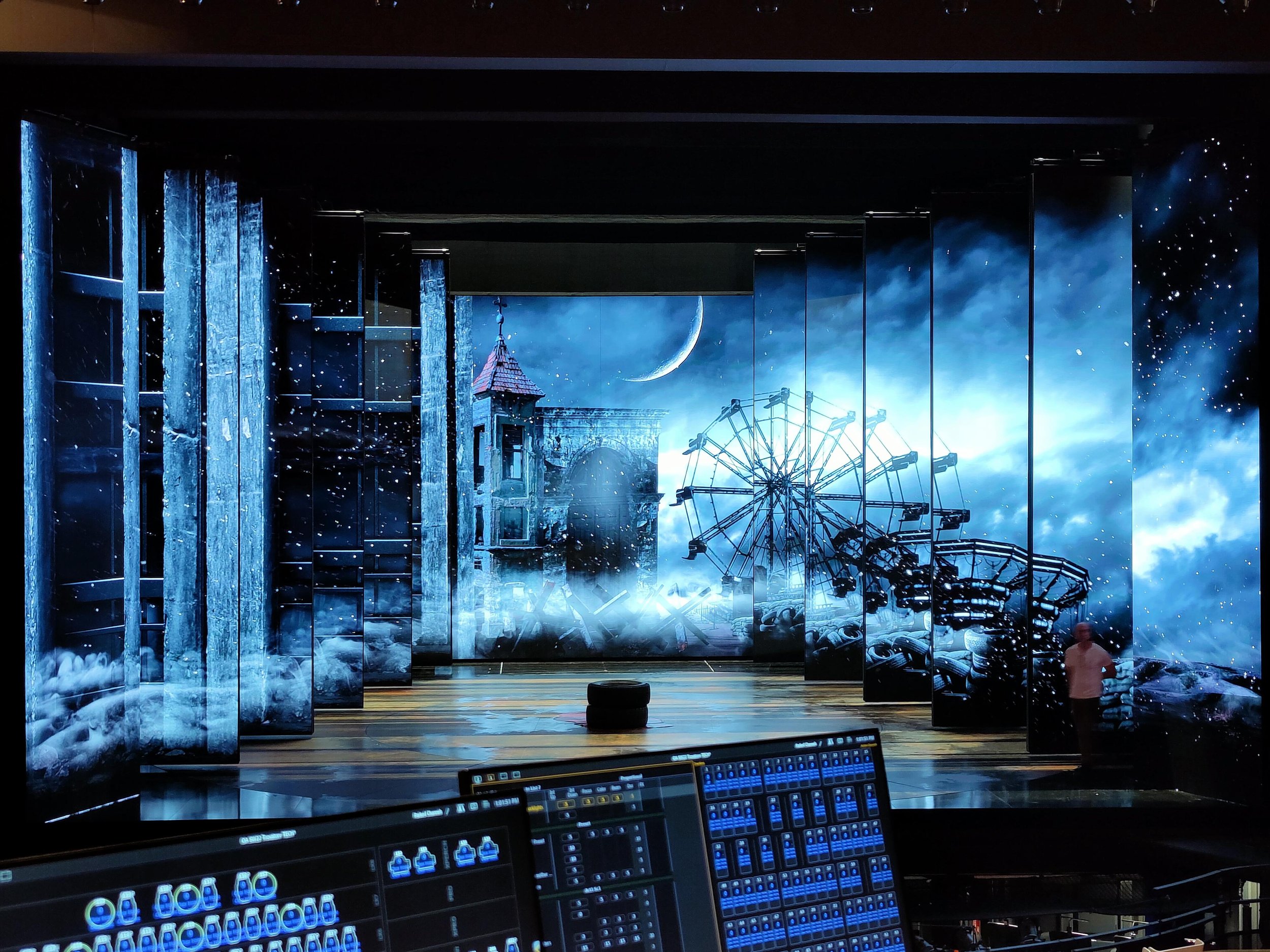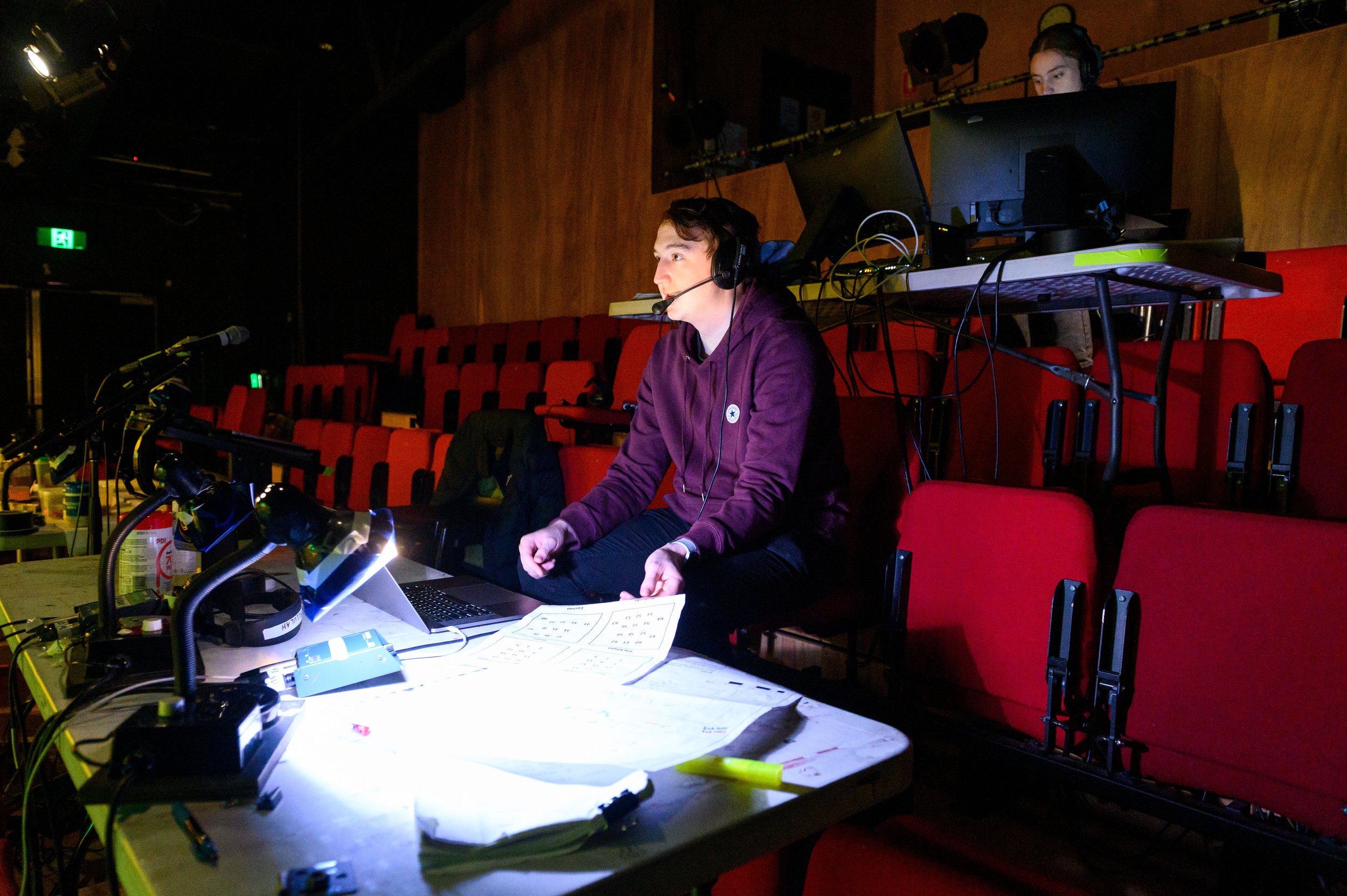A conversation with 2022 scholarship winner THEO VINEY
In August 2022, Theo Viney was awarded a TCT Scholarship. A year on, we sat down with him to chat about his theatre experiences, how he was able to use the scholarship and what's next for this young professional.
What is your background and relationship with Tasmanian Theatre?
I grew up in Devonport and all the way through my childhood Mum and Dad were very involved in theatre. So, of course, it was going to happen, that all of us kids were also going to get roped into it at some point. I did my first few shows when I was a kid still, with Devonport Choral Society. I think I was seven or eight in productions of King and I. And then I think in 2012, I did Sound Of Music on stage. So I’ve always been around theatre. When I was in high school, it was about grade nine, I volunteered to do some behind-the-scenes work with Devonport Choral Society. Because I think my mom and two brothers were both in that show and I wasn't in that one, but I still wanted to be involved. So I said what can I do? I ended up follow-spotting that. That was my first time doing any lighting behind the scenes. And I loved it. So the next year, I came in to do more of the lighting plots. I worked with a designer called Nick Glen, who's also from Devonport, and he had also done a whole lot of Devonport Choral shows when he was my age. I watched what he was doing with the lighting design and was just there to take it all in. Then I operated the lights for that show. From there, I did it every year until deciding that I wanted to go to Uni, to VCA, and study lighting design. So I was really inspired [by that experience].
How did you utilise your Theatre Council of Tasmania scholarship?
As part of the third year of my degree we are required to do professional internships and placements. I got an offer to do one with Opera Australia in Sydney on a production of Il Trovatore, which was awesome, but it was in Sydney. So I had to pay for flights and accommodation for about 10 days. So that was one of the main [ways I spent my scholarship]. And that was awesome. I worked with a designer called John Rayment, who's done a whole bunch of opera before, and he was super knowledgeable; a lot of really good general theatre lessons I have picked up from that. Just because he had a lot of really... big picture ideas on designing in general, not just specific to opera, the main use of it. And then I had a bit of money left over so at the end of the year I put that towards purchasing some software and lighting equipment for starting my own freelancing work once I graduated Uni.
How did you find the scholarship process and what advice would you give for somebody who's going through it?
I think it was really straightforward in terms of the application and what was required of it. I would definitely say, if anyone is thinking about it, they might as well because you’ve got nothing to lose. You might get it and then be able to put it towards some awesome learning. Once I got it, there was the opportunity to provide the theatre council team with updates on what I was doing and how I was going and what I'd spent it on and what I'd learned. That was nice, to be able to reflect. And it was very low pressure in terms of like “let us know what's going on”, but it wasn't overly stressful to get that to them.
How have you found the process of going through Uni coming from a more rural background?
It's really interesting, I think, because we don't get exposure to theatre and performing arts in the same scale that someone in Melbourne does. In your first year when people are referencing recent productions that have been on and different designers and the community you can feel a little out of it because you just haven't lived in Melbourne, you haven't been able to see these shows that they're talking about. So I'd say, it's certainly a little bit more challenging, but also super rewarding because it's almost eye-opening, how much more there is. And also to see that “Oh, actually, I do kind of know this, even though I'm from a very small town in Northwest Tassie, I was actually able to learn this, and what we were doing back there is relevant to what I'm now studying here”. So it's a bit of a mix, in terms of there's some stuff that's totally just new because you're not exposed to it, but then it's nice to have those things where you go, “oh yeah, we do it the same way, this is still how I've learned it”, and it's nice to have that.
The VCA, instead of doing any sort of grades based [applications], it's all portfolio based. And that also includes interviews in person. I flew over to Melbourne with my dad at the end of 2019 when I finished year 12, or just before I finished year 12, for two days. I had a first stage of interviews, where a few weeks prior they send you a script and then you produce some production documentation based on your ideas on that, just to get a feel for what your skillset is. If you want to be a costume designer, you might make some renderings, or a draft set plan if you’re a set designer. I think I came up with a basic cue list and lighting design images of how I would design this section of the show. And that was the first stage of the interview, talking through my experiences and why I wanted to study there. The next day I was called back to do these group sessions where they had 12 of the interviewees at a time and we all read the script together for 20 minutes. Then I sat down and talked about it and talked about what production elements we could use and design elements and how we might go about, hypothetically if we were going to put it on, what sort of things we could do. And I think that was also to see skillset and thinking, but also how well you work with others, which is obviously super important in theatre. After that it was just a bit of a nervous wait for two weeks to get a phone call and see if I got in. It's a really varied student base. They want people from different experiences and walks of life.
Who has inspired you so far in your journey?
Definitely Nick Glen. He’s the designer from Devonport who I worked with on those Devonport shows and he told me about VCA because that was what he had done, he had somewhat recently gone through VCA. So when I was working on those [shows], hearing about what he was doing, that was when I first started to consider that it is an option for a job. Yeah, I suppose he'd be the main one. John Rayment, who I worked with on that opera show, heaps of really good advice. Matt Scott, who is a lighting designer in Melbourne, was the, or still is, the lecturer of lighting design at the VCA and he just has a wealth of knowledge and experience. He was my mentor on a few of the shows I did there and was definitely a big inspiration in the way that I now practice in the theatre world. One of the things he used to say is, “It doesn't matter how good you are, no one will want to work with you if you're an asshole”. I think that's so important and something that I always remember. And you often see it, some people you work with who maybe haven't taken that on board. So yeah, he’s probably another main one.
So what does post-university look like for you?
I graduated at the end of last year. Through my last year I had already started working casually at Arts Centre Melbourne as a technician. Since graduating, I've now signed a part-time contract there. I'm essentially working full-time now as a technician in Melbourne. And on top of that I have my own soul trader freelance gig where I do lighting design and also some freelance programming and tech work. I designed a show that did a small Victorian tour in May called The World According to Dinosaurs. I was a lighting designer for that. Since then, I've just had a few odds and ends freelancing, but mainly working as a tech. Also at the Malthouse Theatre in Southbank, working there as a tech sometimes as well. I really like Arts Centre because I think it's got five different venues of different scales. You get a huge range of different productions that come in. You get some commercial musicals, Australian ballet, opera, Melbourne Theatre Company, Bangarra or Bell Shakespeare – it's a huge range of companies that come through. So you get to work on a bit of everything, which is really nice.
What are your future professional goals, obviously you've got a lot on your plate at the moment, but anything in particular that you'd love to do?
I would love to work in Tassie, to be honest. Coming back and doing some freelance design or… I think there's a lot going on down there. Especially with the huge festivals we have now, you know, Mofo and Unconformity and 10 Days on The Island. There's plenty of work in Tassie and I would love to crack into it a bit. I grew up there, I love it there, so it'd be nice to be home for a bit and just, even for a few weeks here and there, do some work. Other than that, still upskilling myself and learning more as I go, working on more shows.
What advice would you give to anybody who's looking to work in your industry?
I'd say don't be afraid by the misconceptions that it's not a real job, all that stuff that's often thrown around the arts and theatre, because so many people have proven that that's actually not the case. This theatre industry is massive. Arts and entertainment is massive in Australia. And even Tasmania – there's so much happening there now. Don’t discredit it as a real profession, but I would say make sure that it’s something that you are truly passionate about because it's not just a job. It’s not really a nine-to-five where you can go work, do your thing, and then switch off. We work long hours, weird hours. You’re often spinning a lot of different plates at the same time. So you do need to be passionate about it. But that's probably the main thing – above experience, skills, knowledge, networking is how driven you are and if you want to do it, I think you can do it. You just have to want to.

